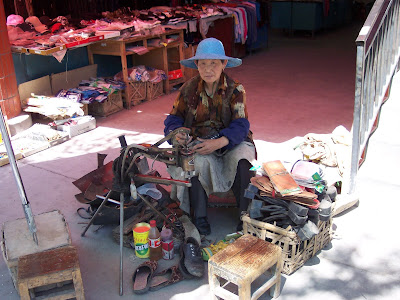You will find the full report at the following homage:
https://drive.google.com/file/d/1UsJj_KNgRxNExNnlvd2EgN82lJQ-jKhg/view?usp=sharing
"Forced Labor" Or "Pursuit of A Better Life"?
An Investigation of Xinjiang Minority Workers' Employment in Guangdong, China
By Nilufer Gheyret and Ning Chen
March 2021
Contents I. Research Background and Questions 1
II. Research Findings 2
1.Why are We Here? 2
a. To See the Outside World 4
b. Higher Income 5
c. Introductions from Family and Friends 10
2. Daily Life of Workers 12
a. A Day at Work 13
b. Rest Days and Holidays 18
c. Long Holidays for Family Reunions 21
3. The Significance of Working in Other Provinces for Xinjiang workers 21 a. Source of Income 22
b. Broadening One's Horizon 25
c. Improving Language & Vocational Skills 28
d. Children's Education 33
4. The Future Plans of the Workers from Xinjiang 34 a. Continuing to Work for More Years 35
b. Settle-down 37
c. Coming Back Home to Start a Business 37
III. Conclusion 39
Executive Summary
In April 2020, the Australian Strategic Policy Institute published a report entitled "Uyghurs for Sale: "Re-education," Forced Labor and Surveillance beyond Xinjiang, which, through second-hand data such as satellite imagery, Chinese documents, and media reports, denigrates the Chinese government's labor transfer policy as an extension of "forced labor" and so-called "re- education camps". The slander that "minorities in Xinjiang are subject to 'forced labor' in inland companies" directly prompted the author to conduct a field investigation into the allegations of "forced labor" in person. This research investigated five companies in Guangdong Province that employ Xinjiang workers, interviewed a total of 70 workers, including Uyghurs, Kazakhs, Kyrgyz, and Tajiks (the interviewee is free to choose the interview language they are comfortable with), and participated in their daily work and life. This research finds that:
In terms of the reasons for working outside Xinjiang, all Xinjiang workers in these five companies came to Guangdong out of personal considerations: including the agreeable natural environment, high salary, high-quality education for their kids, introduced by family and friends, or as an opportunity to broaden their horizons;
In terms of work, the labor rights of Xinjiang ethnic minority workers in these five companies have been fully guaranteed, such as working 8 hours a
day, make-up rest days and extra pay for extending working hours due to the need for production and operation, rest and vacation on statutory holidays, and social insurance;
In terms of life, Xinjiang workers have the right to freedom of religious belief, the right to use their language and writings, the freedom to choose their residence, etc... As to the religious dietary customs of Xinjiang workers, the five companies hired ethnic cooks to prepare halal food.
Working outside Xinjiang has many positive effects on Xinjiang workers, including boosting the income, broadening their horizons, changing their ideas, improving language ability and vocational and technical skills, and giving their children better education, enhancing the status of women, etc. In terms of future plans, affected by the experience of working outside Xinjiang, Xinjiang workers mainly have three different directions, such as continuing to make more money in these companies, returning to their hometowns to start their own businesses, and settling down in Guangdong Province.
In general, working outside Xinjiang is workers' own choice to pursue a better life. The rights of ethnic minorities have been fully guaranteed. The experience of working outside Xinjiang has a lot of positive effects for Xinjiang workers.
Ms. Gheyret is visiting research fellow at the Institute for Communication and Borderland Governance, Jinan University, Guangzhou, China.
Ms. Ning Chen is visiting research fellow at the Institute for Communication and Borderland Governance, Jinan University, Guangzhou, China.
 |



